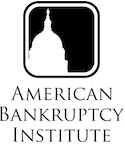Sites Committee
Committees
The U.S. Bankruptcy Court for the District of Delaware recently granted recognition under chapter 15 of the Bankruptcy Code to the foreign liquidation proceedings of Saad Investments Finance Co. (No. 5) Ltd. (SIFCO 5).[1] The debtor is incorporated as an “exempted company” under the Cayman Companies Law.
Recently, the US Bankruptcy Court for the Southern District of New York, in In re Metcalfe & Mansfield Alternative Investments, held that broad nondebtor, third-party releases previously approved as part of foreign restructuring proceedings under the Canadian Companies’ Creditors Arrangement Act (CCAA) where the restructuring plan was adopted by 96 percent of its creditors would be
Commercial real estate projects are typically financed with non-recourse mortgage loans for tax reasons. If the borrower defaults, the lender’s sole recourse is to foreclose on the mortgaged property to recover on any balance owed under the loan; it may not recover against the other assets of the borrower or its principals.
In the wake of the global credit crisis, the U.S. housing market plummeted with values declining as much as 50 percent and home foreclosures at record highs. With lower asset values and frozen credit markets, it became difficult, if not impossible, for U.S. homebuilders to continue business operations. Many U.S.
Since companies are increasingly finding themselves in distressed situations, here is a simple opportunity to act upon that often yields significant dividends: Invest in understanding intellectual property (IP). The IP of an entity needs to be understood as an important value driver for its business and a potent vehicle to increasing potential recovery.
The “New” Federal Pleading Standard after Twombly and Iqbal









